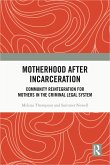Epidemiological Criminology (eBook, PDF)
Theory to Practice
Redaktion: Waltermaurer, Eve; Akers, Timothy
45,95 €
45,95 €
inkl. MwSt.
Sofort per Download lieferbar

23 °P sammeln
45,95 €
Als Download kaufen

45,95 €
inkl. MwSt.
Sofort per Download lieferbar

23 °P sammeln
Jetzt verschenken
Alle Infos zum eBook verschenken
45,95 €
inkl. MwSt.
Sofort per Download lieferbar
Alle Infos zum eBook verschenken

23 °P sammeln
Epidemiological Criminology (eBook, PDF)
Theory to Practice
Redaktion: Waltermaurer, Eve; Akers, Timothy
- Format: PDF
- Merkliste
- Auf die Merkliste
- Bewerten Bewerten
- Teilen
- Produkt teilen
- Produkterinnerung
- Produkterinnerung

Bitte loggen Sie sich zunächst in Ihr Kundenkonto ein oder registrieren Sie sich bei
bücher.de, um das eBook-Abo tolino select nutzen zu können.
Hier können Sie sich einloggen
Hier können Sie sich einloggen
Sie sind bereits eingeloggt. Klicken Sie auf 2. tolino select Abo, um fortzufahren.

Bitte loggen Sie sich zunächst in Ihr Kundenkonto ein oder registrieren Sie sich bei bücher.de, um das eBook-Abo tolino select nutzen zu können.
Waltermaurer and Akers bring together leading researchers and practitioners in a book that transcends and merges the disciplines of criminal justice and public health, criminology and epidemiology.
- Geräte: PC
- mit Kopierschutz
- eBook Hilfe
- Größe: 3.29MB
Andere Kunden interessierten sich auch für
![Epidemiological Criminology (eBook, ePUB) Epidemiological Criminology (eBook, ePUB)]() Epidemiological Criminology (eBook, ePUB)45,95 €
Epidemiological Criminology (eBook, ePUB)45,95 €![Black Children of Incarcerated Parents Speak Truth to Power (eBook, PDF) Black Children of Incarcerated Parents Speak Truth to Power (eBook, PDF)]() Black Children of Incarcerated Parents Speak Truth to Power (eBook, PDF)42,95 €
Black Children of Incarcerated Parents Speak Truth to Power (eBook, PDF)42,95 €![Motherhood after Incarceration (eBook, PDF) Motherhood after Incarceration (eBook, PDF)]() Melissa ThompsonMotherhood after Incarceration (eBook, PDF)42,95 €
Melissa ThompsonMotherhood after Incarceration (eBook, PDF)42,95 €![Women's Desistance in a Colonial Context (eBook, PDF) Women's Desistance in a Colonial Context (eBook, PDF)]() Grace LowWomen's Desistance in a Colonial Context (eBook, PDF)42,95 €
Grace LowWomen's Desistance in a Colonial Context (eBook, PDF)42,95 €![Policing Domestic Abuse (eBook, PDF) Policing Domestic Abuse (eBook, PDF)]() Katy Barrow-GrintPolicing Domestic Abuse (eBook, PDF)35,95 €
Katy Barrow-GrintPolicing Domestic Abuse (eBook, PDF)35,95 €![Law, Drugs and the Making of Addiction (eBook, PDF) Law, Drugs and the Making of Addiction (eBook, PDF)]() Kate SeearLaw, Drugs and the Making of Addiction (eBook, PDF)35,95 €
Kate SeearLaw, Drugs and the Making of Addiction (eBook, PDF)35,95 €![Domestic and Family Violence (eBook, PDF) Domestic and Family Violence (eBook, PDF)]() Silke MeyerDomestic and Family Violence (eBook, PDF)38,95 €
Silke MeyerDomestic and Family Violence (eBook, PDF)38,95 €-
-
-
Waltermaurer and Akers bring together leading researchers and practitioners in a book that transcends and merges the disciplines of criminal justice and public health, criminology and epidemiology.
Dieser Download kann aus rechtlichen Gründen nur mit Rechnungsadresse in A, B, BG, CY, CZ, D, DK, EW, E, FIN, F, GR, HR, H, IRL, I, LT, L, LR, M, NL, PL, P, R, S, SLO, SK ausgeliefert werden.
Produktdetails
- Produktdetails
- Verlag: Taylor & Francis eBooks
- Seitenzahl: 280
- Erscheinungstermin: 13. November 2014
- Englisch
- ISBN-13: 9781136184925
- Artikelnr.: 39041847
- Verlag: Taylor & Francis eBooks
- Seitenzahl: 280
- Erscheinungstermin: 13. November 2014
- Englisch
- ISBN-13: 9781136184925
- Artikelnr.: 39041847
- Herstellerkennzeichnung Die Herstellerinformationen sind derzeit nicht verfügbar.
Eve Waltermaurer is currently the Director of Criminology at the State University of New York (SUNY) New Paltz. In addition, she is the Director of Research and Evaluation for SUNY New Paltz' Center for Research, Regional Engagement and Outreach (CRREO). Prior to her current position at SUNY New Paltz, Dr. Waltermaurer worked as a Public Health Epidemiologist at the Violence Prevention Unit of the New York City Department of Health. Timothy A. Akers is a Professor of Public Health and Associate Dean for Graduate Studies and Research in the School of Computer, Mathematical and Natural Sciences at Morgan State University (MSU) in Baltimore, Maryland. Professionally, Dr. Akers' career has spanned both public health and criminal justice, where he was a former Senior Behavioral Scientist with the U.S. Centers for Disease Control and Prevention (CDC) and has worked in law enforcement, community-based corrections, the prison system, and as a planning and research analyst for a municipal police agency.
Introduction, Timothy Akers and Eve Waltermaurer 1. Understanding Health
Disparaties in an Age of Mass Imprisonment, Bryan Sykes and Pierre Vachon
2. Applying Criminological Theory to Understand Health Outcomes, Victoria
Frye and Phillip T. Yanos 3. The Social Interaction between Crime,
Infectious Disease and Community Level Epidemiology, Jeffrey A. Walsh and
Jessie Krienert 4. Criminological Epidemiology or Epidemiological
Criminology: Integrating National Surveillance Systems, Timothy Akers 5.
Applying Epidemiological Criminology to Understand the Health Outcomes of
Police Officers, Eve Waltermaurer 6. Epidemiological Criminology: At the
Crossroads of Youth Violence Prevention, Paul Juarez 7. The Multiple Risks
of U.S. Black American Males: A Priority Case for Criminogenic Health
Disparaties, Carl Hill and Tawana Cummings 8. Crime and Victimization in
the Latino Community, Venus Gines and William Hervey 9. The Health Crisis
Among Incarcerated Women and Girls, Joanne E. Belknap and Elizabeth Whalley
10. The Epidemiology of Eldery Victimization, Ronet Bachman 11. Child
Victimization: The Evolution of Gand-Hybrid Families and Violence, Stacy
Smith and Kevin Daniels 12. Health Consequences of Intimate Partner
Violence, Louise-Anne McNutt 13. Youth and School Violence: An
Epidemiological Criminology Perspective, Alexander Crosby, Jeffrey Hall and
Sharyn Parks 14. Chronic Disease Within Correctional Facilities, Roberto
Potter 15. Infectious Disease in State Prisons, Soffiyah Elijah, Scott
Paltrowitz and Jack Beck 16. Mental Health Among Inmates, David X. Williams
17. Leveraging Technology to Enhance Corrections-Health and Human Service
Information Sharing and Offender Reentry, Adam K. Matz 18. Criminal Justice
Policy: Health Disparities, Karen Bouye 19. Health and Social Policy: An
Evidence-Based Imperative for Epidemiological Criminology, Thomas W.
Brewer, Krystel Tossone & Jonathan VanGeest 20. A Guide to Violence
Prevention within the Juvenile Justice System: Applying the Epidemiological
Criminology Framework, Scott A. Rowan, Aaron Mendelson & Timothy A. Akers
21.Cure Violence: A Disease Control Approach to Reduce Violence and Change
Behaviour, Charles L. Ransford, Candice Kane & Gary Slutkin 22. Why and How
Neighbourhoods Matter for Health: An Epidemiological Criminology
Framework,m Eileen E. S. Bjornstrom
Disparaties in an Age of Mass Imprisonment, Bryan Sykes and Pierre Vachon
2. Applying Criminological Theory to Understand Health Outcomes, Victoria
Frye and Phillip T. Yanos 3. The Social Interaction between Crime,
Infectious Disease and Community Level Epidemiology, Jeffrey A. Walsh and
Jessie Krienert 4. Criminological Epidemiology or Epidemiological
Criminology: Integrating National Surveillance Systems, Timothy Akers 5.
Applying Epidemiological Criminology to Understand the Health Outcomes of
Police Officers, Eve Waltermaurer 6. Epidemiological Criminology: At the
Crossroads of Youth Violence Prevention, Paul Juarez 7. The Multiple Risks
of U.S. Black American Males: A Priority Case for Criminogenic Health
Disparaties, Carl Hill and Tawana Cummings 8. Crime and Victimization in
the Latino Community, Venus Gines and William Hervey 9. The Health Crisis
Among Incarcerated Women and Girls, Joanne E. Belknap and Elizabeth Whalley
10. The Epidemiology of Eldery Victimization, Ronet Bachman 11. Child
Victimization: The Evolution of Gand-Hybrid Families and Violence, Stacy
Smith and Kevin Daniels 12. Health Consequences of Intimate Partner
Violence, Louise-Anne McNutt 13. Youth and School Violence: An
Epidemiological Criminology Perspective, Alexander Crosby, Jeffrey Hall and
Sharyn Parks 14. Chronic Disease Within Correctional Facilities, Roberto
Potter 15. Infectious Disease in State Prisons, Soffiyah Elijah, Scott
Paltrowitz and Jack Beck 16. Mental Health Among Inmates, David X. Williams
17. Leveraging Technology to Enhance Corrections-Health and Human Service
Information Sharing and Offender Reentry, Adam K. Matz 18. Criminal Justice
Policy: Health Disparities, Karen Bouye 19. Health and Social Policy: An
Evidence-Based Imperative for Epidemiological Criminology, Thomas W.
Brewer, Krystel Tossone & Jonathan VanGeest 20. A Guide to Violence
Prevention within the Juvenile Justice System: Applying the Epidemiological
Criminology Framework, Scott A. Rowan, Aaron Mendelson & Timothy A. Akers
21.Cure Violence: A Disease Control Approach to Reduce Violence and Change
Behaviour, Charles L. Ransford, Candice Kane & Gary Slutkin 22. Why and How
Neighbourhoods Matter for Health: An Epidemiological Criminology
Framework,m Eileen E. S. Bjornstrom
Introduction, Timothy Akers and Eve Waltermaurer 1. Understanding Health
Disparaties in an Age of Mass Imprisonment, Bryan Sykes and Pierre Vachon
2. Applying Criminological Theory to Understand Health Outcomes, Victoria
Frye and Phillip T. Yanos 3. The Social Interaction between Crime,
Infectious Disease and Community Level Epidemiology, Jeffrey A. Walsh and
Jessie Krienert 4. Criminological Epidemiology or Epidemiological
Criminology: Integrating National Surveillance Systems, Timothy Akers 5.
Applying Epidemiological Criminology to Understand the Health Outcomes of
Police Officers, Eve Waltermaurer 6. Epidemiological Criminology: At the
Crossroads of Youth Violence Prevention, Paul Juarez 7. The Multiple Risks
of U.S. Black American Males: A Priority Case for Criminogenic Health
Disparaties, Carl Hill and Tawana Cummings 8. Crime and Victimization in
the Latino Community, Venus Gines and William Hervey 9. The Health Crisis
Among Incarcerated Women and Girls, Joanne E. Belknap and Elizabeth Whalley
10. The Epidemiology of Eldery Victimization, Ronet Bachman 11. Child
Victimization: The Evolution of Gand-Hybrid Families and Violence, Stacy
Smith and Kevin Daniels 12. Health Consequences of Intimate Partner
Violence, Louise-Anne McNutt 13. Youth and School Violence: An
Epidemiological Criminology Perspective, Alexander Crosby, Jeffrey Hall and
Sharyn Parks 14. Chronic Disease Within Correctional Facilities, Roberto
Potter 15. Infectious Disease in State Prisons, Soffiyah Elijah, Scott
Paltrowitz and Jack Beck 16. Mental Health Among Inmates, David X. Williams
17. Leveraging Technology to Enhance Corrections-Health and Human Service
Information Sharing and Offender Reentry, Adam K. Matz 18. Criminal Justice
Policy: Health Disparities, Karen Bouye 19. Health and Social Policy: An
Evidence-Based Imperative for Epidemiological Criminology, Thomas W.
Brewer, Krystel Tossone & Jonathan VanGeest 20. A Guide to Violence
Prevention within the Juvenile Justice System: Applying the Epidemiological
Criminology Framework, Scott A. Rowan, Aaron Mendelson & Timothy A. Akers
21.Cure Violence: A Disease Control Approach to Reduce Violence and Change
Behaviour, Charles L. Ransford, Candice Kane & Gary Slutkin 22. Why and How
Neighbourhoods Matter for Health: An Epidemiological Criminology
Framework,m Eileen E. S. Bjornstrom
Disparaties in an Age of Mass Imprisonment, Bryan Sykes and Pierre Vachon
2. Applying Criminological Theory to Understand Health Outcomes, Victoria
Frye and Phillip T. Yanos 3. The Social Interaction between Crime,
Infectious Disease and Community Level Epidemiology, Jeffrey A. Walsh and
Jessie Krienert 4. Criminological Epidemiology or Epidemiological
Criminology: Integrating National Surveillance Systems, Timothy Akers 5.
Applying Epidemiological Criminology to Understand the Health Outcomes of
Police Officers, Eve Waltermaurer 6. Epidemiological Criminology: At the
Crossroads of Youth Violence Prevention, Paul Juarez 7. The Multiple Risks
of U.S. Black American Males: A Priority Case for Criminogenic Health
Disparaties, Carl Hill and Tawana Cummings 8. Crime and Victimization in
the Latino Community, Venus Gines and William Hervey 9. The Health Crisis
Among Incarcerated Women and Girls, Joanne E. Belknap and Elizabeth Whalley
10. The Epidemiology of Eldery Victimization, Ronet Bachman 11. Child
Victimization: The Evolution of Gand-Hybrid Families and Violence, Stacy
Smith and Kevin Daniels 12. Health Consequences of Intimate Partner
Violence, Louise-Anne McNutt 13. Youth and School Violence: An
Epidemiological Criminology Perspective, Alexander Crosby, Jeffrey Hall and
Sharyn Parks 14. Chronic Disease Within Correctional Facilities, Roberto
Potter 15. Infectious Disease in State Prisons, Soffiyah Elijah, Scott
Paltrowitz and Jack Beck 16. Mental Health Among Inmates, David X. Williams
17. Leveraging Technology to Enhance Corrections-Health and Human Service
Information Sharing and Offender Reentry, Adam K. Matz 18. Criminal Justice
Policy: Health Disparities, Karen Bouye 19. Health and Social Policy: An
Evidence-Based Imperative for Epidemiological Criminology, Thomas W.
Brewer, Krystel Tossone & Jonathan VanGeest 20. A Guide to Violence
Prevention within the Juvenile Justice System: Applying the Epidemiological
Criminology Framework, Scott A. Rowan, Aaron Mendelson & Timothy A. Akers
21.Cure Violence: A Disease Control Approach to Reduce Violence and Change
Behaviour, Charles L. Ransford, Candice Kane & Gary Slutkin 22. Why and How
Neighbourhoods Matter for Health: An Epidemiological Criminology
Framework,m Eileen E. S. Bjornstrom







